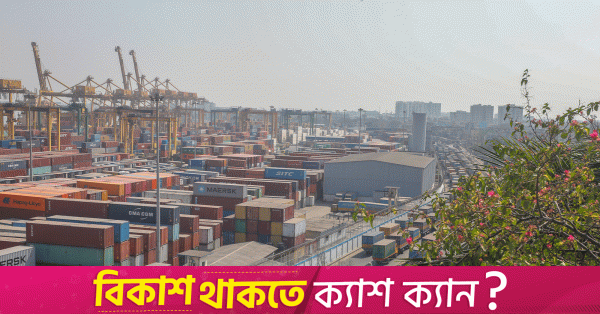Lighter vessels shortage, container congestion at Ctg port disrupt supply chain
Chattogram Port Faces Severe Lighter Vessel Shortage

Chattogram Port, the busiest port in Bangladesh, is currently grappling with a severe shortage of lighter vessels, causing significant disruptions in the supply chain. This shortage, combined with container congestion, is leading to operational challenges and financial losses for stakeholders.
Shortage of Lighter Vessels
The shortage of lighter vessels has led to over 400 privately owned vessels remaining idle at the outer anchorage of Chattogram Port. Previously, three lighter vessels were allocated daily to unload goods from a single mother vessel, but this has now dropped to one vessel per day or a maximum of two in three days, reducing the daily allocation by 50%.
Each lighter vessel carries between 1,200 and 5,000 tonnes of cargo, with an average capacity of 3,000 tonnes per vessel. With 400 vessels unable to unload, an estimated 12 lakh tonnes of essential goods remain stuck, including edible oil, sugar, lentils, and more. This backlog is causing delays for mother vessels, leading to congestion at the outer anchorage.
Container Congestion
In addition to the lighter vessel shortage, container congestion has worsened at Chattogram Port, particularly with increased imports ahead of Ramadan. Over the last month, the number of imported containers at the port’s yard has surged by 4,000 TEUs, straining logistics.
To address the situation, the Chattogram Port Authority has held discussions with Bangladesh Railway and other stakeholders. A press conference is scheduled to outline potential solutions to alleviate container congestion and improve port operations.
Impact on Vessel Owners
Lighter vessel owners are incurring heavy losses due to delays in unloading goods. Each vessel is losing Tk10-15 lakh due to prolonged unloading times. Importers using lighter vessels as floating storage worsen the crisis, as over 400 vessels remain occupied with undelivered goods.
Import of essential commodities has surged significantly, with total imports increasing from 14.75 lakh tonnes to 19.19 lakh tonnes between October and January of the 2024-25 fiscal year. The increase in imports has further strained port operations, with container yard capacity reaching maximum levels.
The Chattogram Port Authority has announced a new directive regarding storage fees for containers at the port. The authorities have stated that containers not cleared by 9 March will be charged four times the standard storage fees. This move aims to prevent artificial supply shortages in the market and streamline the container clearance process.
Containers not cleared by 9 March will be charged four times the standard storage fees:
According to the Chattogram Port Authority, the current storage fees for a 20-foot container are as follows: $6 for the first seven days after the 4-day free period; $12 for the next seven days; and $24 from the third week onward. For a 40-foot container, the charges are $12 for the first seven days after the 4-day free period; $24 for the next seven days; and $48 from the third week onward. Under the new directive, these charges will be quadrupled if clearance is delayed beyond the deadline.
Md Omar Faruk, secretary of the Chattogram Port Authority, emphasized the importance of this penalty notice in preventing artificial supply shortages. He stated, “From the fifth day onwards, containers will be charged four times the regular fee.” This strict measure aims to incentivize timely clearance of containers and avoid disruptions in the supply chain.
Amirul Haque, managing director of Premier Cement, highlighted the typical timeline for ships to unload at the port, which is 15-20 days. However, delays often occur due to warehouse shortages, leading to additional demurrage fees. These fees depend on agreements between ship owners and importers, further complicating the clearance process.
Commodore Mohammad Maksud Alam, director general of the Department of Shipping, expressed concerns about the current restrictions on enforcing the Maritime Transport Policy. He explained that lighter vessels being used as warehouses disrupt the supply chain and create logistical challenges. However, due to a court-imposed restriction on enforcing this policy, the authorities are unable to address this issue effectively with BWTC sellers or ship owners.
